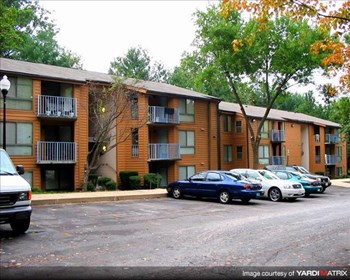DISRUPTING Rentals

Our Silicon Valley techbros continue to pay so many dividends, if you are a shareholder at least. Otherwise, they see you as a mark for DISRUPTION!!! I was not aware that this included the rental market, but of course it would. Rachel Cohen has a good piece on this in Baltimore.
A new bill in Baltimore passed the City Council last month, promising to address the problem of high security deposits for renters while being met with objections from local housing and tenant groups. Mirroring similar statutes that have passed recently in two other cities, the bill requires Baltimore landlords to offer alternatives to the traditional security deposit. If tenants can’t or don’t want to pay a lump sum up front, landlords must offer one of two alternatives: either pay the regular deposit in three monthly installments or purchase so-called rental security insurance.
The bill doesn’t specifically name Rhino, a real estate startup that launched in 2017, but it’s widely understood that “security insurance” refers to a financial product that Rhino promotes. The product allows tenants to pay a small monthly nonrefundable fee in lieu of a large refundable security deposit. The average Baltimore deposit is $1,000, and a typical Rhino policy for that would be about $5 per month.
Local housing groups in Baltimore say they support the idea of offering three monthly installments as an alternative, but virtually all housing activists in the city have concerns about the Rhino insurance model. Lawmakers rejected an amendment introduced by Ryan Dorsey, one of just two council members to vote against the legislation, to take the Rhino option out of the bill.
The local outlet the Baltimore Brew reported that Rhino lobbied for the legislation and arranged for two council members, including the bill’s primary sponsor, Council Vice-President Sharon Green Middleton, to speak on Rhino-hosted housing roundtables. (Middleton did not return The Intercept’s requests for comment.) Jordan Stein, Rhino’s head of public policy and a onetime assistant in former New York City Mayor Michael Bloomberg’s administration, registered as a city lobbyist on March 29, two days after the Baltimore Brew article was published.
The bill is heralded as “giving renters choice,” but the legislative text gives the ability to pick between monthly installments or Rhino to the landlord, not the tenant. Landlords nationwide dislike monthly installment options, typically viewing them as too risky.
Sounds good, right? But…..
Critics say calling these products “insurance” is a deceptive marketing ploy that provides tenants with a false sense of security. Some housing experts describe them as more akin to a surety bond, a type of three-way agreement in which a company promises one party that the other will meet its obligations. Housing authorities have taken different sides on the question, and supporters note that Rhino and its peers are licensed insurance agencies.
“If tenants think of the product as insurance, as it’s described in Rhino’s marketing materials, and either don’t realize they’re purchasing a bond or don’t know how a bond works, they may unwittingly sign up for a liability that far exceeds what they would ever willingly fork over to their landlord for a cash deposit,” warned housing reporter Alex Williamson in a Shelterforce article last December.
Williamson interviewed two tenants who confronted large unexpected charges from Rhino at the end of their leases, after their landlords claimed that they had to make repairs and handle damages due to their behavior.
One tenant was Peter Steininger, a college student in Brooklyn whose landlord suggested that he get Rhino for a $45 monthly fee. (Rhino is available but not legally required in New York City.) When Steininger signed the contract, he didn’t realize that he was agreeing to pay the company for claims up to $7,200, more than double his security deposit.
When Steininger moved out, he learned that his landlord had filed $6,000 in claims. Steininger disputed the charges and provided evidence that the landlord had made false allegations. Rhino sent Steininger an automated message saying the company had ruled in the landlord’s favor, and Steininger said he struggled to connect with anyone in customer service thereafter.
Steininger told The Intercept that Rhino reached out to him shortly after the Shelterforce article was published and agreed to cancel the charges. “I think I probably would’ve been screwed if it wasn’t for Alex and Shelterforce,” he said.
A lot of this DISRUPTION nonsense is really a response to a degraded regulatory state. Between a lack of new regulations for a transformed economy, the corporate capture of what regulatory agencies do exist, and the cult of the rich, there are myriad opportunities for grifters and scammers to steal from the poor. That’s what this is–making largely white men in the Silicon Valley rich by stealing money from the poor of Baltimore. What could be more New Gilded Age than this?


